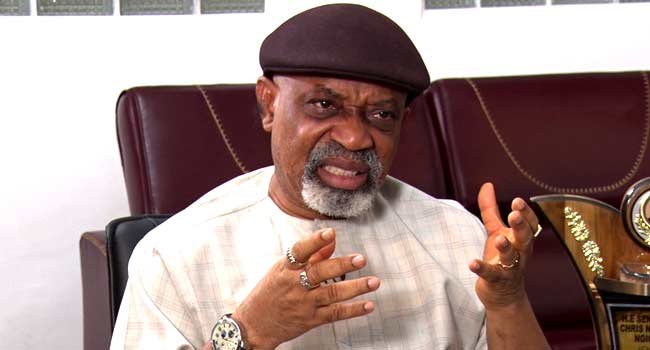[ad_1]
Chris Ngige, minister of labour and employment, has kicked against the bill seeking to mandate medical and dental practitioners to practice for five years in Nigeria before relocating abroad.
According to NAN, Ngige spoke to journalists after a federal executive council (FEC) meeting on Monday.
In April, Ganiyu Johnson, an All Progressives Congress (APC) lawmaker from Lagos, sponsored the bill seeking to amend the Medical and Dental Practitioners Act 2004, to address the brain drain in the health sector.
On Monday, the Nigerian Association of Resident Doctors (NARD) announced that it will commence a five-day warning strike on Wednesday, over the failure of the federal government to meet its demands.
The withdrawal of the anti-brain drain bill from the national assembly is one of the prominent demands of the association.
Speaking on the bill, Ngige described it as “unworkable” and “like killing a fly with a sledgehammer”.
He added that the proposed law did not have his support and urged the legislature to look for “other ways” to curb the brain drain.
“Nobody can say they (doctors) will not get a practising licence till after five years. It will run counter to the laws of the land that have established the progression in the practice of medicine,” the minister said.
“I am a medical doctor. When you graduate from the medical school, you go on one-year apprenticeship called housemanship or internship as the case maybe. After your internship, you are now given a full licence because prior to that, what you have is a provisional licence of registration with the Nigerian Medical and Dental Council of Nigeria (MDCN).
“So, after that intensive training, you were signed off by consultants and you became a fully qualified medical doctor to attend to human beings and to work without any supervision again. Supervision then is voluntary.
“Resident Doctors are those who have that full licence and they want to acquire post-graduate speciality and speciality is known like surgeons, gynaecologists, obstetrics, paediatrics and internal medicine or family medicine. So, they are doctors in training.
“The bill in the national assembly cannot stop anybody from getting a full licence. That bill is a private members’ bill.
“In the national assembly, they attend to private members’ bills and executive bills. Executive bills emanate from the government into the national assembly with the stamp of the executive.
“It is either sent by the attorney general of the federation or by the president but usually from the attorney general of the federation. So, it’s not an executive bill, it’s a private members bill.
“That bill is moved by the man from Lagos. So, members of his constituency can tell him this is worrying us. Can’t we check these doctors this way by you going to speak than put up a document?
“That document is as far as I am concerned, not workable. Ab initio, I don’t support it and I will never support it. Like I said before, it is like killing a fly with a sledgehammer.
“They should think of other ways if they are trying to check brain drain, there should be other ways.
“If a doctor has read on scholarship, you bond him, if a doctor has read on bursary, you can bond him. If a doctor is trained like we are doing now on little or nothing, which is like a scholarship again because N50,000 a session per medical student is nothing when their counterparts overseas pay seventy thousand pounds for a session.
“So, I don’t support that bill, but you can bond them if you want.”
[ad_2]
Source link



